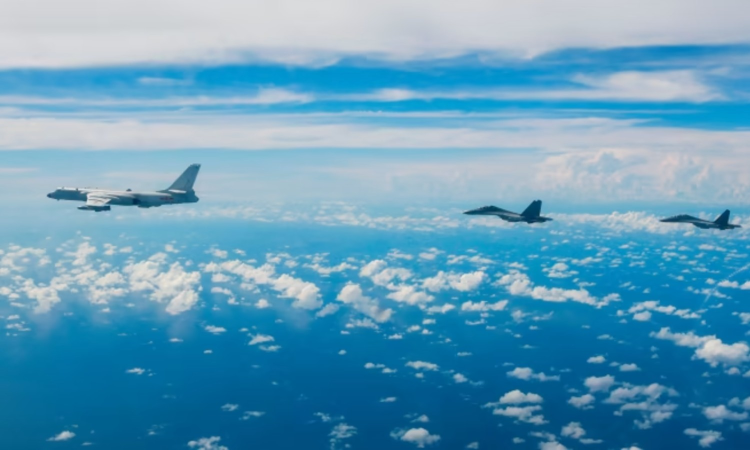Safe skies: Taiwan calls for ICAO inclusion
For decades, Taiwan has been excluded from the ICAO due to political pressure from China, creating a potential gap in the global aviation network. This situation poses risks and challenges to aviation safety that Taipei is actively seeking to address

The International Civil Aviation Organisation (ICAO) convenes its Assembly once every three years. During the event, multilateral meetings and discussions are held to draw up global civil aviation regulations and standards. Nations abide by the conclusions drawn at the Assembly, ensuring the safe and orderly growth of international civil aviation worldwide. The 42nd session of the ICAO Assembly will be held in Montreal, Canada, from September 23 to October 3. In line with its long-term strategic plan, ‘Safe Skies, Sustainable Future,’ ICAO is emphasising a commitment to working with all stakeholders — including member states, non-member states, NGOs, and private enterprises — to build a more resilient, sustainable, and inclusive international aviation system. We call on ICAO to allow Taiwan to fully participate in its Assembly, technical meetings, and mechanisms to ensure regional aviation safety and development needs, thereby achieving safe skies amid a sustainable future.
Aviation safety and growth needs
The Taipei Flight Information Region (FIR) covers one of the busiest regions in East Asia for air travel. It is an indispensable part of ICAO’s network of over 300 FIRs. Taiwan’s Civil Aviation Administration (CAA) is the sole entity responsible for overseeing the Taipei FIR. The CAA offers a comprehensive range of information services and manages air routes to ensure safety and efficiency for all flights and passengers arriving in, departing from, and transiting the Taipei FIR. From both a risk and safety management perspective, ICAO should permit Taiwan’s CAA to participate on an equal footing with the oversight agencies of other FIRs. This will ensure that the Taipei FIR can communicate directly with other FIRs as well as with ICAO to ensure the free flow of timely information.
Despite not having authority over the Taipei FIR, China, in recent years, has declared temporary danger areas and airspace reservations and has established military exercise areas within the Taipei FIR. China has failed to comply with ICAO requirements that advance notice of at least seven days be given concerning such measures. This has severely compromised flight safety in the Taipei FIR and neighbouring FIRs.
Global aviation faces many natural and manmade challenges, such as climate change, power banks, and international geopolitical strife. Taiwan, which is responsible for the considerable traffic through the Taipei FIR, makes every effort to be a responsible stakeholder in the international aviation community. To undergird regional flight safety, Taiwan again calls on ICAO to recognise the importance of the Taipei FIR and of its participation in ICAO.
Safe skies and sustainable future
The CAA does its best to collect the information it can via indirect channels. It also invites aviation experts from other countries to hold training courses. This helps it to achieve international aviation safety management standards. It also adopts or modifies regulations, systems, and procedures in line with ICAO standards in ways that benefit global and regional aviation safety. For example, the CAA has initiated a State Safety Programme and collaborates with aviation industry stakeholders through this programme to establish safety oversight systems. This has contributed to Taiwan’s exceptional overall safety performance. From 2020 to 2024, the five-year moving occurrence rates of turbofan and turboprop aircraft were zero (zero accidents per million departures). The safety performance of Taiwan’s aviation industry has also been remarkable. EVA Air, for instance, has been recognised as one of the world’s safest full-service airlines by AirlineRatings.com and was ranked seventh-safest in 2025.
To further sustainable development of the aviation industry, the CAA has incorporated the Carbon Offsetting and Reduction Scheme for International Aviation (CORSIA) into domestic law and launched a sustainable aviation fuel pilot program in April 2025. This demonstrates the determination of Taiwan’s aviation industry to take concrete steps toward a net-zero transformation.
Despite these efforts, to ensure access to timely and comprehensive information, the CAA must be allowed to participate in the technical meetings and training opportunities offered by ICAO. ICAO should act in line with its No One Left Behind initiative to rectify the fact that the CAA remains unable to participate in its activities.
Taiwan needs your support
Aviation safety knows no borders. For decades, the CAA has mandated and upheld the highest standards of service and safety for the Taipei FIR while meeting ICAO Standards and Recommended Practices. As a stakeholder in the international aviation community, Taiwan shares in the responsibility to safeguard regional and global aviation safety. Through participation in ICAO, Taiwan will be able to continue to work with other countries to contribute to the further development of global aviation and the well-being of all mankind.
ICAO is set to convene the 42nd Assembly with the theme “Safe Skies, Sustainable Future.” It is time for ICAO to bring Taiwan into the fold. With meaningful participation, Taiwan can contribute its professional expertise in pursuit of ICAO’s vision of safer skies and a more sustainable future. Taiwan’s CAA is committed to working with the international community to implement the Standards and Recommended Practices (SARPs).
Chen Shih-kai is Minister of Transportation and Communications, ROC (Taiwan)



